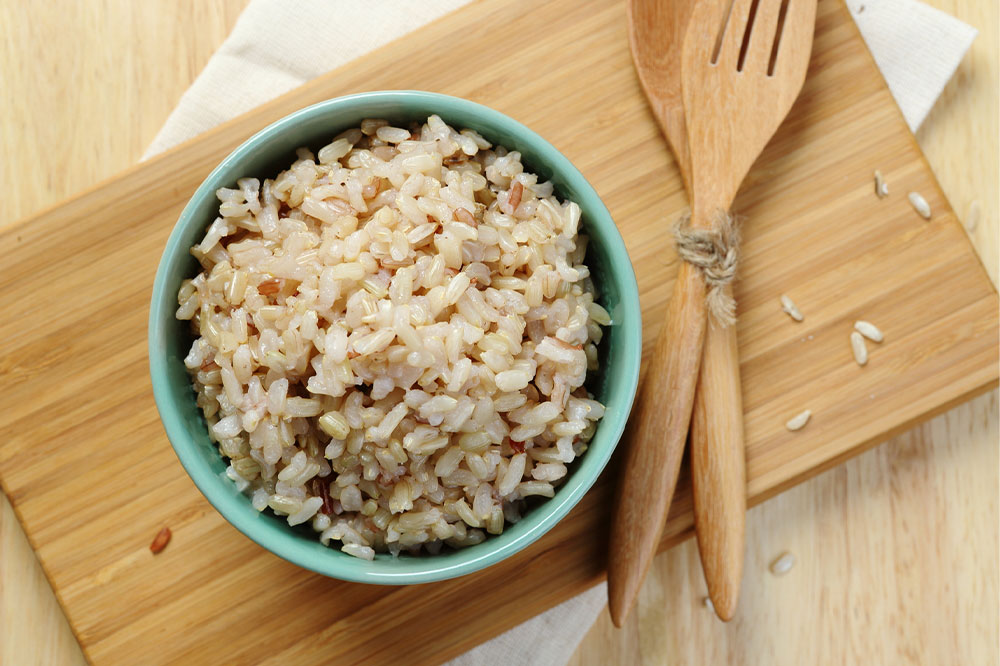4 foods that are surprisingly bad foods for diabetics

Many foods are portrayed to be the best for diabetics, but it would be surprising to know that even wholesome foods could cause a spike in sugar levels if the portion size is not moderated. Food choices truly matter when a person has diabetes. Under normal circumstances, one would think that these foods aid in better health and maintain sugar levels, but they don’t. Here are four surprisingly bad foods for those with diabetes:
Brown rice
While brown rice certainly has more fiber than white rice, a single cup of brown rice contains nearly 50 grams of carbohydrates. This can easily be broken into glucose which could spike the sugar levels. The alternative would be to cut down on rice and add more green leafy vegetables.
Fresh fruit juice
It does not matter if one opts for seasonal juice or those that claim that they have no extra sugar added. If we take an orange as fruit and look at its nutrient content, it has about 15 grams of carbohydrates, vitamins, and fiber. An orange juice, on the contrary, has 45 grams of carbohydrates and less of other nutrients. Therefore, drinking juice is not the same thing as eating fruit.
Dried fruits
If one thinks having a raisin is healthier than a chocolate cookie, think again. Raisins contain 1 gram of carb more than what is available in a chocolate cookie. That said, they are undoubtedly wholesome compared to a cookie. However, both of them would result in a spike in blood sugar. The same holds good for cranberries and apricots.
Yogurt
Yogurt offers a plethora of health benefits, including probiotics for gut health. However, they are heavily processed and contain a wallop of 30 grams of sugar, even in the best of the brands. Ensure to read the ingredient before buying one. In addition, if the person is undergoing treatment, they must especially avoid this food.
Treatment options
Invokana
The generic name for Invokana is Canagliflozin, used by those with type 2 diabetes to control their high blood sugar levels. In addition, it is used by people who have both type 2 diabetes and any kidney disease to lower the risk of dialysis. Invokana works by increasing the removal/elimination of sugar by the kidneys. It has proven to be of great choice in preventing blindness, diabetic neuropathy and nephropathy, loss of limbs, and sexual function problems. This is consumed orally and has to be prescribed by a doctor as it has to be adjusted based on the condition and response to the treatment.
Glucotrust
Glucotrust is one product that has gained a wave of positive response from its users in the last year. While most medicines primarily help control blood sugar levels, Glucotrust aims to find the root cause of the disease/disorder and works to maintain normal blood sugar levels. For starters, Glucoterust helps improve the person’s metabolic rate, reduces cravings for food and large portions, and aids in getting a good night’s sleep.
It uses natural ingredients that help the body to work on itself to recover, meaning it helps the body to convert food and maintain normal blood sugar, eventually leading to a natural hormonal balance. Natural ingredients include biotin, manganese, chromium, turmeric, bitter melon, cinnamon, and Gymnema Sylvestre. In addition to controlling blood sugar levels, Gluocotrust promotes healthy blood flow and circulation, maintains blood pressure, and promotes insulin production. However, the makers of Glucotrust also insist on following a particular dietary pattern to reap the maximum benefit.
Insulin therapy
Insulin therapy replaces the insulin that the body would usually make. It is an injection that is either delivered all day and night so that blood glucose level is controlled substantially, or it can be a dose of insulin taken during meal time(s) to help the movement of absorbed sugar when it gets high. More often than not, people with Type 1 diabetes must take insulin every day. Those with Type 2 may need insulin therapy when other treatments fail to control their blood sugar levels. This therapy provides a specific type of insulin recommended by a doctor based on the blood sugar levels and, more specifically, when it peaks and drops. Other factors that are considered include age, body weight if the person has other medical conditions, and level of physical activity.
Kerendia
Kerendia aims to reduce the risk sustained due to Type 2 diabetes. Some risk factors that are reduced due to Kerendia include end-stage kidney health, cardiovascular death, and hospitalization for heart failure in patients with acute kidney disease. Chronic diseases of the heart and kidneys are caused mainly by either scarring or swelling of the heart or blood vessels of the kidneys. This can be attributed to over activity of the Mineralocorticoid receptors (MRs). These protein elements manage one’s blood pressure and aid in the maintenance of electrolyte and fluid balance in the body. Kerendia works by reducing the MRs activity that could lead to swelling or scarring, reducing the chances of chronic kidney diseases, end-stage kidney disease, and heart attack.